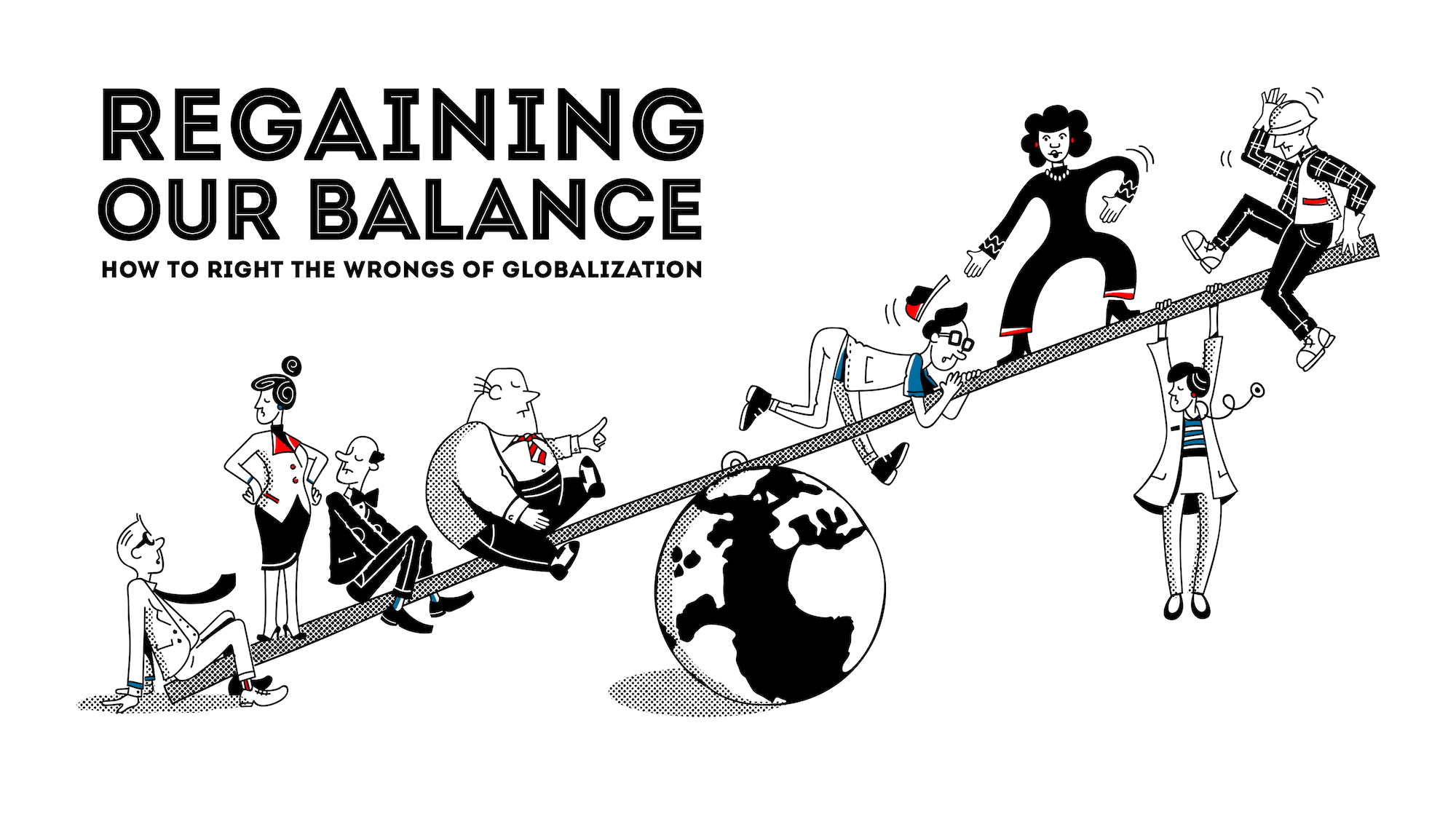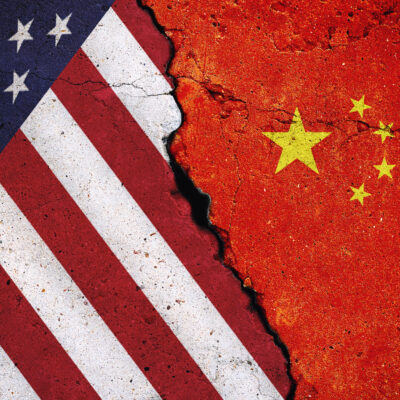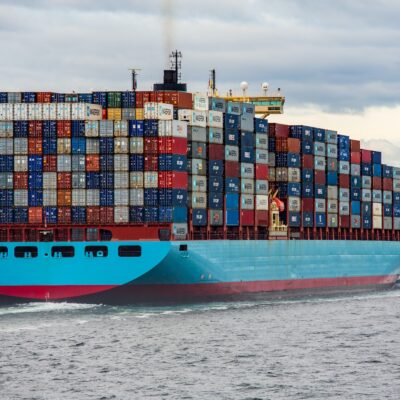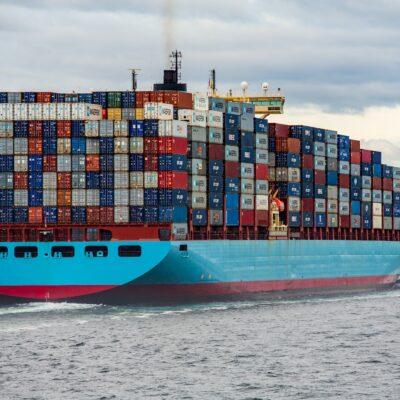

“Until you came along, nobody ever mentioned it.”
RECOMMENDED READING
The endless handwringing over Donald Trump’s political success never seems to focus on perhaps the most obvious explanation, which is that often he is right. Look at his recent interview with Time Magazine, and his answers on trade especially. After describing his plans to strengthen the American market, Trump launched into a—maybe apocryphal, certainly illustrative—anecdote about a conversation with former German Chancellor Angela Merkel:
“I said to Angela Merkel, ‘Angela, how many Chevrolets are in the middle of Berlin?’ She said none. I said, ‘You’re right about that. But we take your cars, including cars that aren’t that expensive, like Volkswagen, relatively speaking.’ I said, “Do you think that’s fair?’ She said, “Probably not, but until you came along, nobody ever mentioned it.”
“Until [Trump] came along, nobody ever mentioned it” is a fitting epitaph for many of his expert critics. Sometimes they never mentioned it because it was simply impolite or unfashionable. But often, they have been so committed to their economic orthodoxy, so incurious about the trade-offs in their policy program, that when challenged they have little to fall back on. Previously, tariffs could be dismissed simply as protectionism, which was of course bad, because free trade was of course good. That position, once considered the “sophisticated” one, has been proven anything but. Left to debate the issue on the merits, Trump’s opponents are struggling to construct any coherent argument at all.
Their latest tactic is the deeply unimaginative claim that tariffs are inflationary. They really should know better, and, in fact, many economists do. As a practical matter, Americans have the experience of Trump’s first term, when the aggressive tariffs that he imposed on China produced endless caterwauling from the usual suspects, but inflation was not an issue at all. Even the Peterson Institute (no friend to tariffs) has acknowledged that Trump’s tariffs on Chinese goods “only marginally contributed to U.S. inflation.”
Of course, that won’t satisfy the most dogmatic economists who, like to say, “Sure it works in practice, but what about in theory?” So, it does not work as an argument politically or in practice, but does it work in theory? Should tariffs be inflationary?
Tariffs do increase the price of a given tariffed import. To quote Erica York, senior economist at the Tax Foundation, that is “the whole point.” They increase the price of imports compared to competing domestically produced good in order to make the domestic good relatively more attractive. As York continued, “the result is relative but not overall price increases.”
Inflation concerns overall price levels in the economy and occurs when more money is chasing fewer goods. That’s not what tariffs do. This is easiest to see by recognizing that a tariff is a form of tax, and raising additional revenue through a tax—especially if it helps to close a budget deficit—is never described as inflationary in other contexts. Any serious economic analysis of tariffs must look beyond the initial, static effect and ask what the dynamic macroeconomic effect would be. Of course, free traders love to do this when promoting their preferred policies: Don’t worry about your factory shutting down; it’s actually efficient and will lead to this and that and the other thing and somehow you’ll end up better off. But now, how quickly they forget.
Along these same lines, a serious analyst would consider the long-term effects of the reshoring and more stable, secure supply chains that tariffs would promote. If, as the Biden Council of Economic Advisors claims, “sectoral supply chain bottlenecks were responsible for a significant share of total observed U.S. inflation from 2021 to 2022,” it would be the low-tariff policy that spurred globalization and fragile supply lines that has proved inflationary in practice. Perhaps relearning how to make things in America would be good, in the long run, for the prices that Americans pay.
Unlike Trump’s critics, Americans seem to intuit all of this—a recurring pattern. For instance, even though a plurality of Americans (41%) believes that they have benefited personally from globalization, likely in the form of cheaper goods, a larger plurality (47%) also believes the nation as a whole has suffered. And unlike the experts who insist making things doesn’t matter, Americans agree with the view that “we need a stronger manufacturing sector” by ten to one, with the most frequently chosen reason being that “manufacturing is important to a healthy, growing and innovative economy.”
Trump’s argument for putting a “ring around the country” with a 10% general tariff on all imports echoes American Compass’s call for a “bounded market” and similar tariff proposal. As we have explained in Regaining Our Balance, a global tariff would help address the America’s $1 trillion trade deficit, spur investment in domestic manufacturing, and onshore critical supply chains.
Of course, the typical voter is not making this explicit economic calculation. Trump rightly recognizes that American workers and American businesses are competing against heavily subsidized foreign industries that engage in immoral labor practices. American producers are then actively prohibited from accessing the markets of those same countries.
That is, to put it bluntly, unfair, and it is unfair in a way that is obvious to the average voter. So long as Trump is the only one speaking bluntly about this state of affairs and proposing to do anything about it, he will continue to win both policy and popularity contests.
Recommended Reading
Regaining Our Balance
How to Right the Wrongs of Globalization
A Hard Break from China
Protecting the American Market from Subversion by the CCP
Issues 2024: Globalization
Revitalizing the national economy must begin with restoring the incentive to invest and build in America.
Policy Brief: The Global Tariff
Levy a tariff on all imports that rises until trade is balanced














